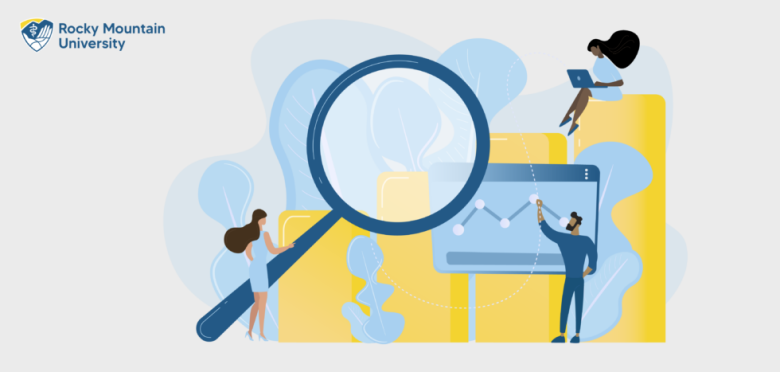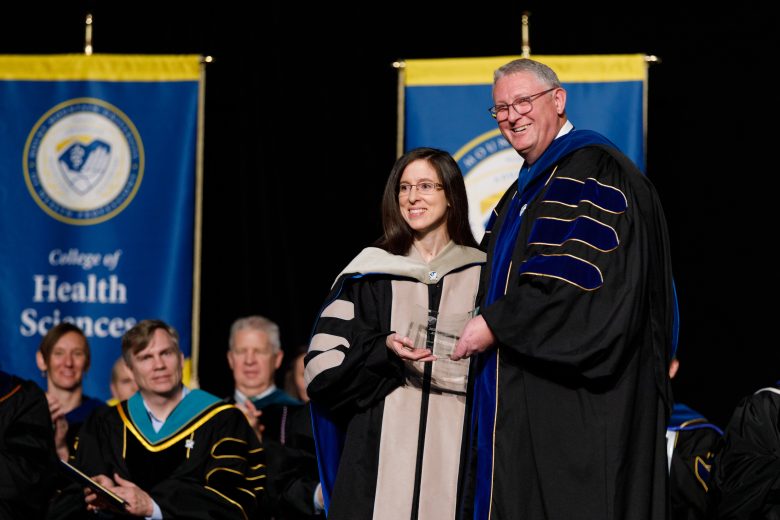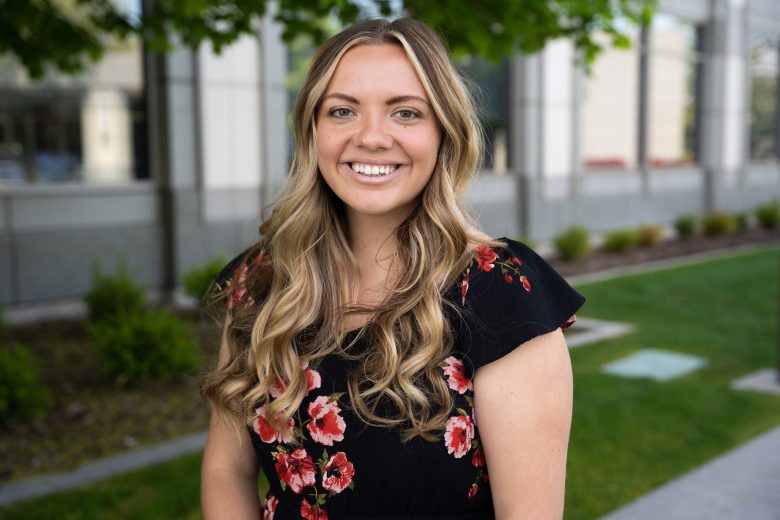Healthcare providers can use social media to make key connections, advocate for their profession, and get ahead in their career.
 “Are you on Twitter?”Intermountain Healthcare’s public relations representative found Viet Le, PA-C, before he left to attend the 2014 American Heart Association conference to present his cardiology research. “I just want you to share some of your experiences on Twitter while you’re at the conference,” the representative told Le.“So that’s what I did,” said Le. The experience kicked off his presence on social media, which has grown into a dynamic career networking platform for Le and other healthcare providers like him.Social media related to conferences have been a large part of Le’s success. He explains that “each conference has built hashtags around conferences, and I’ve engaged in online conversations via social media. Because I’m willing to engage with everyone in the medical community who’s online, it breaks the ice. So when I meet people at conferences, it’s not like a cold call. We know each other on Twitter, so when we meet at the conference ‘Tweetups,’ we hug and share jokes that we’ve shared through Twitter.” He adds, “That more than anything has put me at the table.”Then it grew from there for Le. “I went from just tweeting about experiences to becoming the social media ambassador for the American Association of Cardiology, the Association of Physician Assistants in Cardiology, and then officially for Intermountain Healthcare.”For Viet, engaging in social media has been fun and rewarding. And he’s not the only one participating in and benefiting from social media as a healthcare provider.Kim Barber Foss, MS, ATC, LAT, is widely known and accomplished in the field of athletic training and her list of awards and acknowledgments goes well beyond a few pages. For her, social media allows her to act as an advocate. “I use social media frequently for my profession. It is a great means in which to advocate for athletic training, network, share ideas, and also disseminate our research findings quickly and to diverse people.” While she’s found audiences who follow her, social media has also opened doors to networking opportunities. “Social media has significantly impacted my interprofessional and professional connections. It capitalizes on networking and building a web of interconnections. Social media allows you to reach people you may not be directly affiliated or connected with through an ever-expanding reach,” said Foss.Le has benefited in the same way as a physician assistant. Social media is “my way to interact and be part of the conversation,” said Le. “You get to talk to people you wouldn’t otherwise think to talk to face-to-face: editors of journals, presidents of organizations, writers of manuscripts. They’ve already put themselves out there online, so if you engage with them, then you meet them at conferences, like through Tweetups. I would never have approached them otherwise.”For young professionals who are working on moving up in their careers, Foss says social media is a great tool for quickly building a network. But she offers a caution for young professionals: “Your online persona or message in college may not be what you want to portray as a young professional…So think about your professional persona and how you want to be viewed by others.” Upgrading social media presence can help healthcare graduates as they transition to professional practice. Overall, “It’s also great for sharing information and staying abreast of current topics,” said Foss. “Young professionals can get connected and tied into other professionals through social media. Plus, it may help align you with a mentor or colleagues in similar settings or situations.” For Foss and Le, engaging on social media opened up opportunities in their varying healthcare fields. “It has opened up doors. It has allowed me to get to the table-a virtual table. You can leverage that in different ways,” said Le.
“Are you on Twitter?”Intermountain Healthcare’s public relations representative found Viet Le, PA-C, before he left to attend the 2014 American Heart Association conference to present his cardiology research. “I just want you to share some of your experiences on Twitter while you’re at the conference,” the representative told Le.“So that’s what I did,” said Le. The experience kicked off his presence on social media, which has grown into a dynamic career networking platform for Le and other healthcare providers like him.Social media related to conferences have been a large part of Le’s success. He explains that “each conference has built hashtags around conferences, and I’ve engaged in online conversations via social media. Because I’m willing to engage with everyone in the medical community who’s online, it breaks the ice. So when I meet people at conferences, it’s not like a cold call. We know each other on Twitter, so when we meet at the conference ‘Tweetups,’ we hug and share jokes that we’ve shared through Twitter.” He adds, “That more than anything has put me at the table.”Then it grew from there for Le. “I went from just tweeting about experiences to becoming the social media ambassador for the American Association of Cardiology, the Association of Physician Assistants in Cardiology, and then officially for Intermountain Healthcare.”For Viet, engaging in social media has been fun and rewarding. And he’s not the only one participating in and benefiting from social media as a healthcare provider.Kim Barber Foss, MS, ATC, LAT, is widely known and accomplished in the field of athletic training and her list of awards and acknowledgments goes well beyond a few pages. For her, social media allows her to act as an advocate. “I use social media frequently for my profession. It is a great means in which to advocate for athletic training, network, share ideas, and also disseminate our research findings quickly and to diverse people.” While she’s found audiences who follow her, social media has also opened doors to networking opportunities. “Social media has significantly impacted my interprofessional and professional connections. It capitalizes on networking and building a web of interconnections. Social media allows you to reach people you may not be directly affiliated or connected with through an ever-expanding reach,” said Foss.Le has benefited in the same way as a physician assistant. Social media is “my way to interact and be part of the conversation,” said Le. “You get to talk to people you wouldn’t otherwise think to talk to face-to-face: editors of journals, presidents of organizations, writers of manuscripts. They’ve already put themselves out there online, so if you engage with them, then you meet them at conferences, like through Tweetups. I would never have approached them otherwise.”For young professionals who are working on moving up in their careers, Foss says social media is a great tool for quickly building a network. But she offers a caution for young professionals: “Your online persona or message in college may not be what you want to portray as a young professional…So think about your professional persona and how you want to be viewed by others.” Upgrading social media presence can help healthcare graduates as they transition to professional practice. Overall, “It’s also great for sharing information and staying abreast of current topics,” said Foss. “Young professionals can get connected and tied into other professionals through social media. Plus, it may help align you with a mentor or colleagues in similar settings or situations.” For Foss and Le, engaging on social media opened up opportunities in their varying healthcare fields. “It has opened up doors. It has allowed me to get to the table-a virtual table. You can leverage that in different ways,” said Le.
— By Stephanie Bentley, Institutional Marketing & Communication Manager
Kim Barber Foss, MS, ATC, LAT, is a faculty member in the Master of Science in Health Sciences program at RMUoHP. She is also a student in the RMUoHP PhD in Health Sciences program with a concentration in Athletic Training. Foss is a member of and serves on several committees within the National Athletic Trainers’ Association, Great Lakes Athletic Trainers’ Association, and Ohio Athletic Trainers’ Association. She is on the Board of Directors of the National Operating Committee on the Standards of Athletic Equipment (NOCSAE) representing the NATA. Additionally, Foss received the 2018 Gatorade Secondary School Athletic Trainer of the Year Award (District 4), 2019 NATA Service Award, and was selected as the 2019 Girl Scouts of Western Ohio Woman of Distinction. This year Foss was named the 2020 NATA Most Distinguished Athletic Trainer Award and the 2020 NATA Secondary School Athletic Trainer of the Year (District 4).
Viet Le, PA-C, is an associate professor in the Master of Physician Assistant Studies at Rocky Mountain University of Health Professions (RMUoHP). Aside from teaching, he works at the Intermountain Heart Institute Cardiology Research as a Cardiology Clinical Research Scientist/PA. He currently serves as the Co-Chair of the American College of Cardiology Cardiovascular Team Section PA Committee, Board Member for the Association of PAs in Cardiology, and Member of the Dues Task Force for the National Lipid Association. He is also a member of the American Heart Association as well as the American Society of Nuclear Cardiology.



